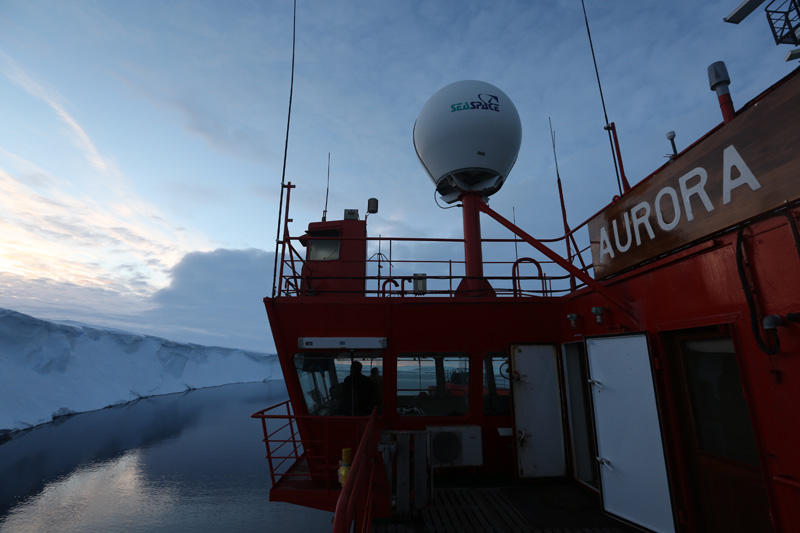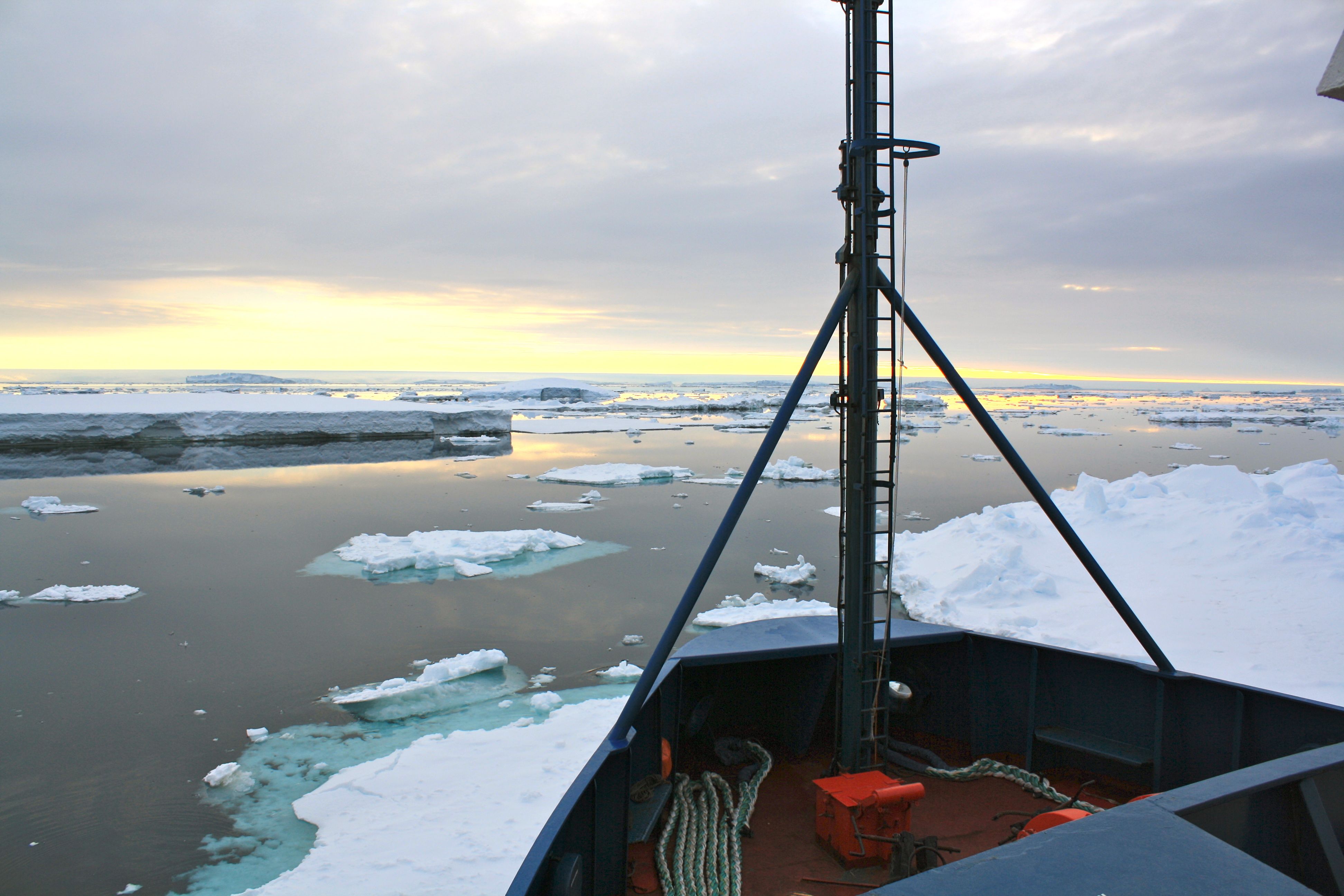
The changing Antarctic environment, and its influence on wildlife shifts in the Southern Ocean, is the subject of a concentrated research effort by Tasmanian scientists aiming to better understand the dynamics of the global climate.
In two free public talks in Hobart and Launceston during this month’s National Science Week three scientists will discuss their contributions to the latest research on the physical, chemical and biological changes inextricably linked to changes in Antarctica.
Titled ‘What’s happening down south and why should we care?’ the talks in Hobart (16 August) and Launceston (17 August) are co-sponsored by the Australian Meteorological and Oceanographic Society, the Australian Marine Science Association, the University of Tasmania and the Australian Institute of Physics.
Presentations will be given by the University of Tasmania’s Prof Matt King, Dr Delphine Lannuzel and Dr Mary-Anne Lea, with time also allowed for audience questions. Master of Ceremonies will be IMAS’ Dr Guy Williams in Hobart and the Principal of AMC, Prof Neil Bose, in Launceston.
(Photo: Ben Arthur)
 IMAS’ Dr Mary-Anne Lea said top predators such as marine mammals, seabirds and penguins occupy a diverse array of habitats in the Southern Ocean, from fast-ice near the pole to the sub-Antarctic islands encircling Antarctica, and beyond.
IMAS’ Dr Mary-Anne Lea said top predators such as marine mammals, seabirds and penguins occupy a diverse array of habitats in the Southern Ocean, from fast-ice near the pole to the sub-Antarctic islands encircling Antarctica, and beyond.
“Many of these birds and mammals grapple with extreme seasonal changes in habitat while some migrate to the northern hemisphere, escaping the Southern Ocean winter.
“Our research interest centres on the implications of ocean changes and shifts in ice distribution and quality for top predators, and the remarkable adaptations many species have evolved to cope with the extreme seasonal changes they encounter.”
Prof Matt King said Antarctic ice is an awakening giant of sea level rise. He will discuss what is known, how it has been measured and is being monitored, and the big uncertainties that need to be addressed if communities globally are to be ready for the future.
Dr Lannuzel said the annual expansion and contraction of sea ice constitutes one of the largest natural events on the planet. She will outline the role of sea ice in governing Earth’s climate and how future changes will affect marine ecosystems.
More than 100 scientists and students are engaged in such research at the University of Tasmania, including IMAS and the Australian Maritime College, the Australian Antarctic Division, CSIRO, Southern Ocean Observing System, Integrated Marine Observing System, and the Commission for Conservation of Antarctic Marine Living Resources.
Hobart talk: 6pm - 7.30pm, Tuesday 16 August at the Stanley Burbury Theatre, University of Tasmania, Sandy Bay campus.
Launceston talk: 6pm - 7.30pm, Wednesday 17 August at the Sir Raymond Ferrall Centre, University of Tasmania, Newnham campus.
Entry is free but registrations are encouraged at: www.events.utas.edu.au